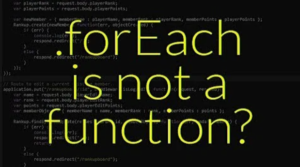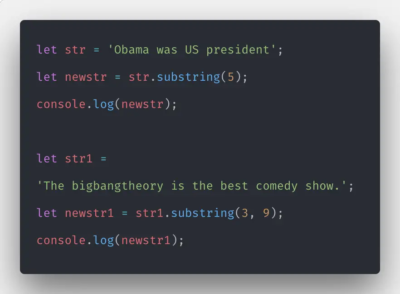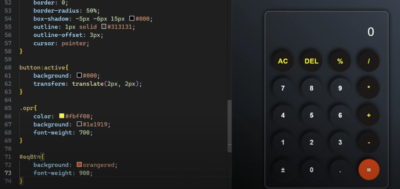
JavaScript objects are fundamentally collections of key-value pairs, also known as properties. They play a pivotal role in almost all JavaScript code, from simple scripts to complex web applications. An example of an object in JavaScript would be:
let car = {
brand: 'Tesla',
model: 'Model S',
year: 2021
};In the above object, brand, model, and year are keys. Each key has a value associated with it; in this case, Tesla, Model S, and 2021, respectively.
What are Dynamic Object Keys?
The term ‘dynamic’ in JavaScript means that something can be changed at runtime. In the context of JavaScript objects, dynamic keys are keys that can be set at runtime. This feature opens the door to a lot of possibilities and flexibility in coding.
Let’s consider a situation where the keys are not known until runtime, or the keys are generated dynamically. In such a case, we can’t use the dot notation to access or set the property because we don’t know the key name.
This is where dynamic object keys come into play. Dynamic keys can be created using the square bracket ([]) notation, where the key name is enclosed in square brackets. For example:
let keyName = "brand";
let car = {
[keyName]: "Tesla"
};In the above example, JavaScript will evaluate the value of keyName and use that as the key. Thus, the object car now has a property brand with a value of Tesla.
Delving Deeper: Computed Property Names
Dynamic object keys are made possible by a feature in JavaScript known as computed property names. This feature was introduced in ES6 and allows an object property name to be dynamically computed at runtime.
In the traditional approach of defining an object, you might do:
let car = {
brand: "Tesla",
model: "Model S",
year: 2021
};The keys here, brand, model, and year, are all static and known at the time of coding. But, with computed property names, the object key is computed at runtime:
let car = {};
let modelKey = "model";
car[modelKey] = "Model S";Here, the object car will have a property model with a value of Model S. The property name was computed at runtime based on the value of modelKey.
Dynamic Object Keys: Benefits & Use Cases
Flexibility
Dynamic keys add flexibility to your code. You can choose the property names at runtime based on various conditions. For example, you may be developing a quiz application where each question is an object. The object keys could be dynamically generated based on the type of question (e.g., multiple choice, fill-in-the-blank, true/false, etc.).
Enhanced Object Manipulation
Dynamic keys greatly simplify the process of object manipulation. For instance, suppose you have a complex object structure, such as a nested object. In this case, dynamic keys enable you to access and modify property values more easily.
Consider this example:
let student = {
name: "John",
scores: {
maths: 85,
english: 90,
science: 95
}
};
let subject = "maths";
student.scores[subject] = 95;In the above example, we are dynamically updating the maths score for student using a dynamic key.
Code Efficiency (Adherence to DRY Principle)
One of the primary principles of coding is DRY, which stands for “Don’t Repeat Yourself.” This principle advises that one should avoid redundancy in coding as much as possible.
With dynamic keys, you can reduce redundant code effectively. Let’s consider a case where you need to create objects for students. Each student has a name and id. Without dynamic keys, you might do something like this:
javascript
Copy code
let students = [];
for (let i = 0; i < names.length; i++) {
students.push({name: nameHowever, using dynamic keys, the process becomes much cleaner:
let keys = ["name", "id"];
let students = [];
for (let i = 0; i < names.length; i++) {
let student = {};
for (let key of keys) {
student[key] = data[key][i];
}
students.push(student);
}In the above example, data is an object where the keys are name and id, and the values are arrays of names and ids, respectively.
Object Property Descriptors
With dynamic object keys, you can also use JavaScript’s Object.defineProperty and Object.defineProperties methods. These methods allow you to define new properties or modify existing properties of an object, along with their characteristics, using dynamic keys.
let car = {};
let key = "model";
Object.defineProperty(car, key, {
value: "Model S",
writable: true,
enumerable: true,
configurable: true
});In this example, a new property model is defined for the car object using a dynamic key. The property descriptor (value, writable, enumerable, configurable) is also set for the property.
Caution with Dynamic Object Keys
As with any other powerful feature, dynamic object keys need to be used judiciously. Overuse or improper use of dynamic keys can make your code harder to read, understand, and debug.
Conclusion
Dynamic object keys are a powerful feature of JavaScript that bring flexibility and code efficiency. They are indispensable in scenarios where property names are unknown until runtime or need to be generated dynamically. While they need to be used judiciously, they indeed add a magical touch to your JavaScript code.
FAQ
In JavaScript, only strings and symbols can be used as property keys, including dynamic keys. If any other data type is used as a key, JavaScript implicitly converts it to a string.
Yes, dynamic keys can be used with all JavaScript objects, including arrays, functions, and plain objects.
Yes, JavaScript’s built-in methods such as Object.keys() and Object.values() can be used with objects that have dynamic keys. These methods will return the dynamic keys and their associated values, respectively.
Dynamic object keys can be used with JavaScript’s Object.defineProperty() and Object.defineProperties() methods. These methods allow you to define new properties or modify existing properties of an object, along with their characteristics, using dynamic keys.







